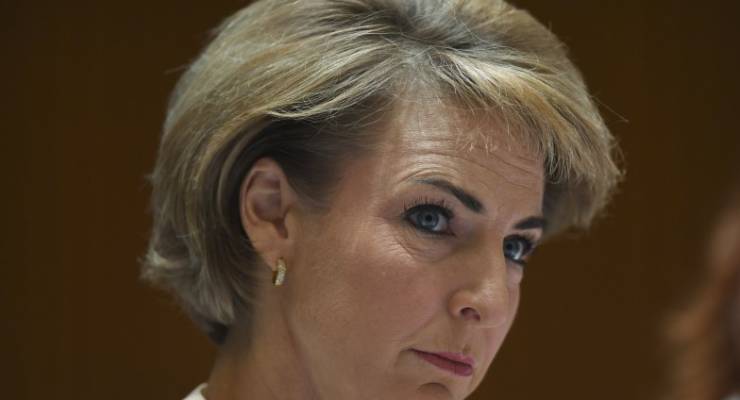
When the government announced a $1.1 billion investment into women’s safety across four years in its last budget, it was welcomed with open arms by advocacy groups.
Specialised women’s legal services would get $129 million to be distributed by states and territories. The announcement specified the money would “be directed to women’s legal centres, to enable these providers to respond to increasing demand for domestic violence assistance”.
But as revealed in Senate estimates, that money won’t go only to specialised centres. Rather it will go to any legal service used by women.
“I think the misunderstanding was it wasn’t to women’s legal centres, capital W, capital L, capital C — it was women’s legal services to women, including those experiencing or at risk of family violence,” Attorney-General Michaelia Cash told estimates last night.
Specialist organisations are suffering, with experts raising concerns generic legal aid organisations don’t provide the services women who have experienced trauma need.
Specialist services are key
Women’s legal aid services representatives say these directives will allow the cash to be opened up to legal assistance service providers such as the Legal Aid Commission, which provides legal services to women but don’t specialise in it.
YWCA Canberra chief executive Frances Crimmins tells Crikey specialist women’s legal services were crucial for women who have experienced trauma and violence: “It is a huge concern if the money doesn’t flow through.
“Having women-led services that are trauma- and gender-informed can make women feel safer and more comfortable in coming forward for assistance.”
There’s also a concern victim-survivors could run into their perpetrator at generic legal services, CEO of Rape & Domestic Violence Services Hayley Foster tells Crikey.
“[Non-specialised legal services] are not a supplement for women’s legal services that operate from a feminist framework and are much more accessible to people who may for example have difficulty qualifying for legal aid,” she said.
Their different approach and processes made it a “different kettle of fish”, she says, adding that some non-women specialised legal centres may have been prioritised because of a lack of women-specific legal services in regional areas.
Women’s Legal Service Tasmania chief executive Yvette Cehtel, whose organisation has a nationwide network of 13 specialist women’s legal centres, called the funding directives a “betrayal”.
Every dollar counts
Women’s services have historically been stretched for cash. The slow-moving funding has seen Women’s Legal Service Tasmania lose one staff member, and Women’s Safety NSW lost its funding from Legal Aid NSW. Two policy officers lost their jobs.
One other specialist organisation Crikey contacted said it hadn’t received any extra funding, but declined to speak on the record because of concerns it may negatively impact future funding.
CEO of Gender Equity Victoria Tanja Kovac tells Crikey the $4.9 million for National Women’s Alliances was a stark example of how limited funding is. The cash is divided across four years, totalling just $200,000 a year for each of the six organisations.
“The amount of funding that is provided to gender equality and women’s organisations in this country is scandalous,” she said.
Despite being the state’s peak organisation for gender equity, women’s health and the prevention of violence against women, Gender Equality Victoria has never received federal funding.
She says compared with other funding announcements, such as a 2019 announcement of $11 million over four years to Men’s Shed as part of the national men’s health strategy, cash for gender equality was paltry — especially given equality is worsening in the country, with Australia slipping backward on the Global Gender Gap Index, ranking 50 out of 156 countries. In 2006, Australia was ranked 15th.
“I am concerned that this is either gender discrimination or unconscious bias, but over time I’m getting concerned that it’s actually conscious bias,” Kovac said.
Minister for Women Marise Payne’s office told Crikey the funding was for “the delivery of legal services to women, including those experiencing, or at risk of, family violence”.








You would think that it would be a sensible political move for the Federal government to spend a few dollars of additional money on dedicated services. This would actually fight the obvious perception that it doesn’t care for women – rather than basically just make another announcement, and thus reinforce an obvious existing negative perception.
Wait… you are expecting THIS government, lead by Morrison and Cash to make meaningful, thoughtful, sensible decisions. THIS Government??? This is just another Scomo special- a headline looking for a policy.
SPOT ON WIZOFOZ